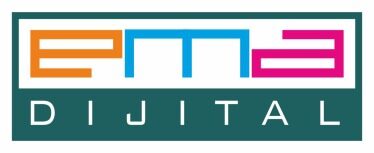But when the expectation of failure becomes a habit or an instinct, the brain gets stuck in a rut of negativity and has a difficult time finding a way out. Such an attitude results in higher stress levels, lower motivation, and an increase in wasted energy. Sherry Gaba, LCSW, is a licensed psychotherapist/author specializing in addictions, codependency, http://pxo22.ru/humor/2020/12/26/carys-when-a-girl-official-music-video.html and underlying issues such as depression, trauma, and anxiety. I do it with one-on-one clients and group activities, but you can also do it with family members and friends who can provide positive solutions and support. When your thoughts are slipping towards relapse and you’ve challenged whether they truly serve you, it’s time to take contrary action.

Find a supportive therapist who can help with mental health.

The thinking mistakes discussed above can apply to pretty much anything but they are particularly relevant for people seeking and engaging with treatment. For the first one, overgeneralizing horizontally, as it were, you will probably find some aspects of recovery harder than others. Your brain adapts to substances with continued use, which makes stopping hard. It requires the right treatment to re-program your mind to live without them. At any moment, someone’s aggravating behavior or our own bad luck can set us off on an emotional spiral that threatens to derail our entire day.
- In addition, addiction is typically marked by urges or craving—wanting a substance so badly it becomes difficult to think about anything else.
- When someone breaks these rules, we feel angry, defeated, and even try to punish ourselves.
- It’s likely that most of us will face a challenge on one or more of these fronts but attempting to predict the future only makes you worry unnecessarily.
- Addiction involves both the mind and the body—and every other facet of existence, because they all interact.
- Chemical changes in the brain influence thoughts about obtaining and using substances to create a desired effect of euphoria.
What Are Some Lesser-Known Signs of Addiction?
Three simple mindfulness practices can help you break free from the cycle. The common technique to challenge this sort of thinking is to dispute the http://www.onvelo.ru/vclothing/7931.html unhelpful thoughts when making these sorts of demands. It’s unlikely that all others in your life will consider you first and above all else.
connection with others, open and honest communication, and empathy, including self-empathy.
Since you must first identify the distortions you struggle with before you can effectively challenge them, this resource is a must-have. Beck, Burns, and other researchers in this area have developed numerous ways to identify, challenge, minimize, or erase these distortions from our thinking. Another ‘fallacy’ distortion involves expecting others to change if we pressure or encourage them enough. This distortion is usually accompanied by a belief that our happiness and success rests on other people, leading us to believe that forcing those around us to change is the only way to get what we want. This may be one of the most surprising distortions to many readers, and it is also one of the most important to identify and address. The logic behind this distortion is not surprising to most people; rather, it is the realization that virtually all of us have bought into this distortion at one time or another.

Addictive thinking needs to be addressed in a drug rehab center for addiction treatment because these thought patterns are tough to break alone. Chemical changes in the brain influence thoughts about obtaining and using substances to create a desired effect of euphoria. These physical and psychological cravings will produce thought patterns which are common to all addicts’ personality features. Addiction has a specific thinking style that enables the addict to continue using substances despite negative consequences. The Journal of Neuroscience reported findings that suggested there may be a cognitive difference in people with addictions and that their brains may not fully process long-term consequences.
- Even if you are not struggling with depression, anxiety, or another serious mental health issue, it doesn’t hurt to evaluate your own thoughts every now and then.
- Again, this demand is “I MUST do well and win approval from others OR I’m no good.” With this demand, you need to perform perfectly and be approved of in all situations to simply consider yourself a worthwhile person.
- How do individuals in recovery reshape their thoughts from irrational distortions to positive, self-affirming thoughts?
- How do individuals in addiction recovery reshape their thoughts from irrational distortions to positive, self-affirming thoughts?
- Begin to talk to yourself in the same encouraging way you would to a friend.
For example, when they have a job interview, they immediately assume the other person will think the worst of them and self-sabotage their opportunity based on their pre-conclusions. These distorted thought processes lead to intense http://watchingapple.com/author/watchingapple/ emotions ranging from excessive hyperactivity/happiness to situationally inappropriate outbursts of anger. When this happens, the individual unknowingly isolates himself from members of society who view him as unstable.
Using Cognitive-Behavioral Therapy (CBT)
You will act as the defense attorney, prosecutor, and judge all at once, providing evidence for and against the irrational thought and evaluating the merit of the thought based on this evidence. The presence of one advantage does not mean the rule or assumption is necessarily a good one, just as the presence of one disadvantage does not automatically make the rule or assumption a bad one. This is where you must think critically about how the rule or assumption helps and/or hurts you. Now that you have outlined a definition of the rule or assumption and its origins and impact on your life, you can move on to comparing its advantages and disadvantages.
